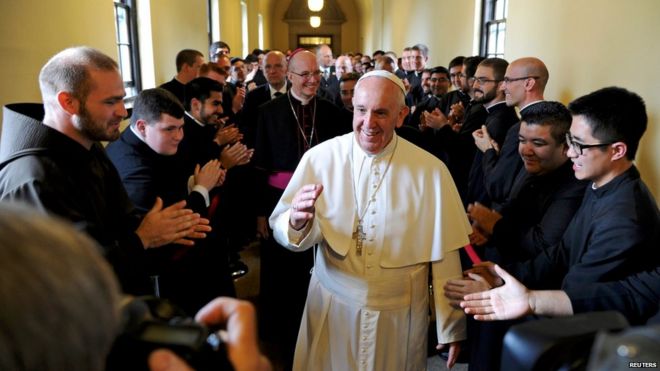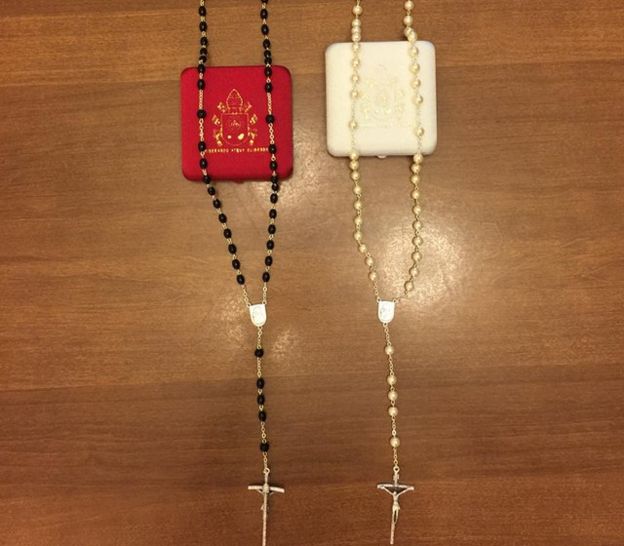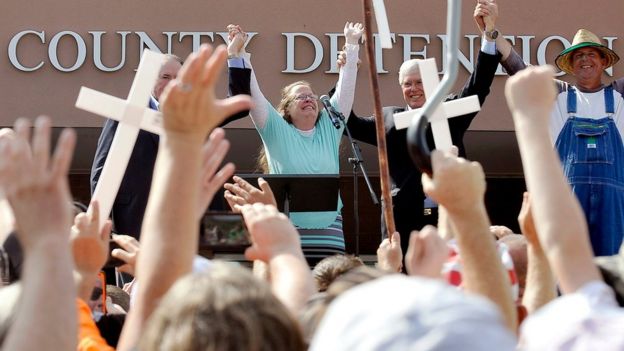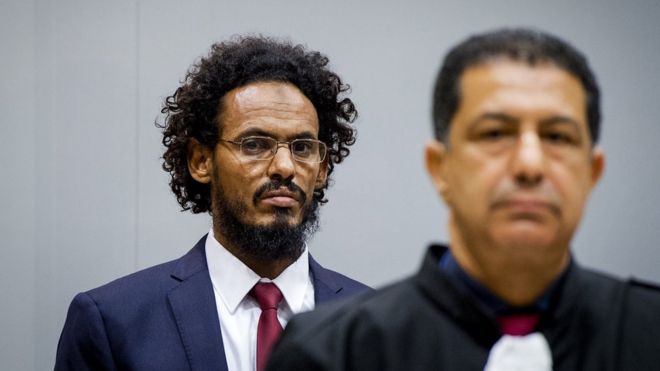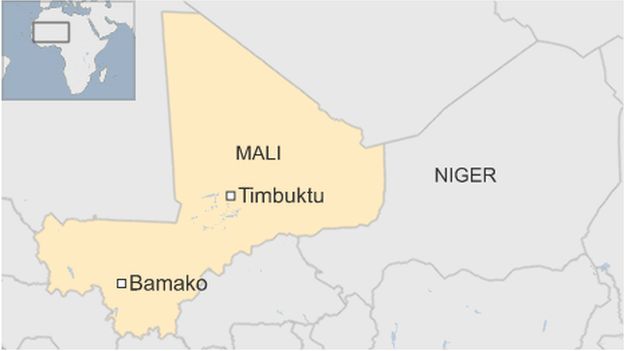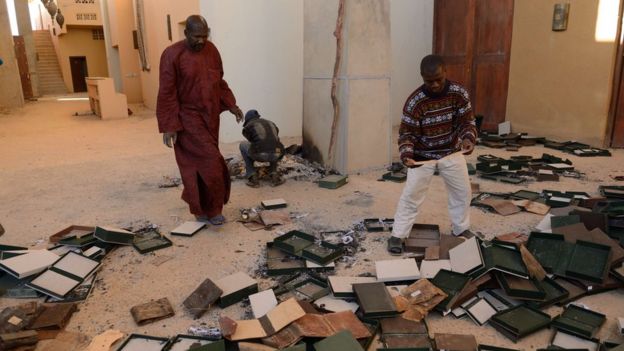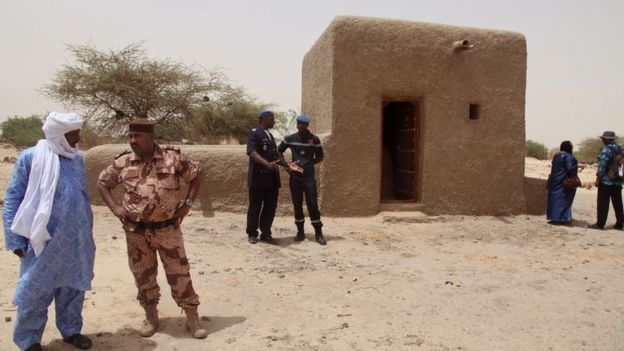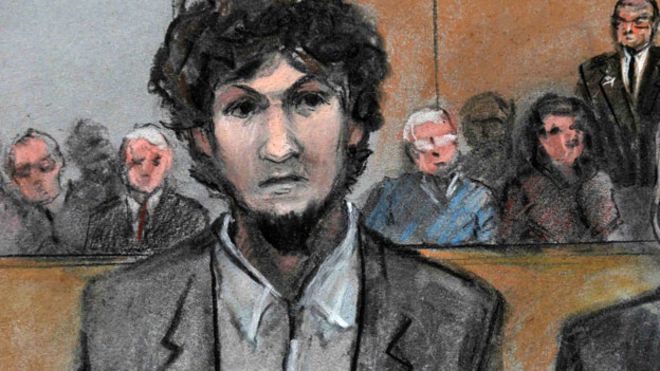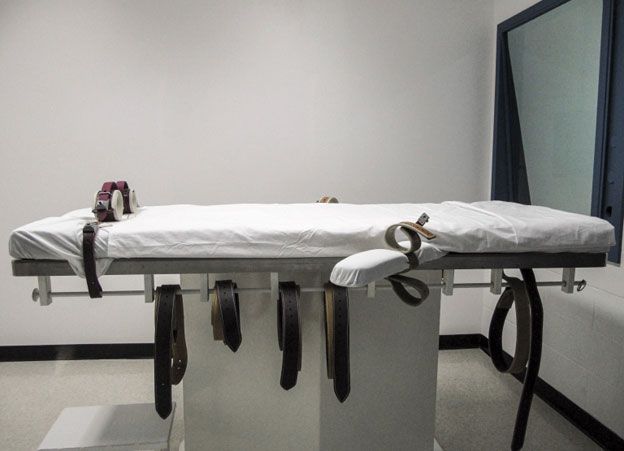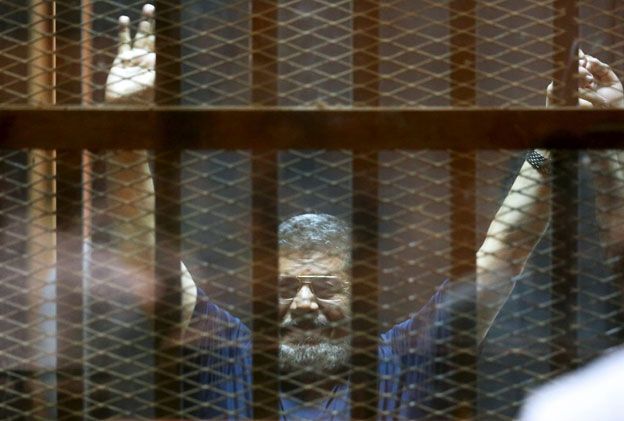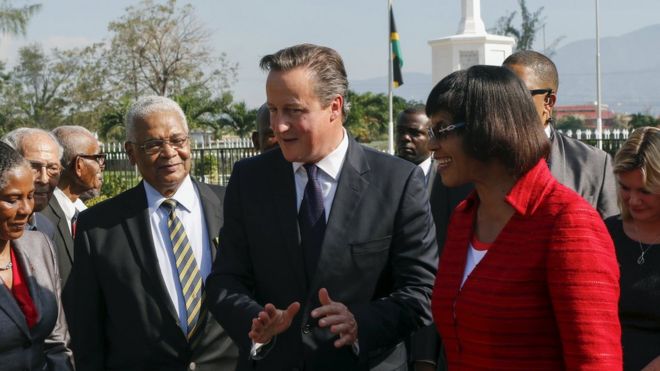
David Cameron has ruled out making reparations for Britain's role in the historic slave trade and urged Caribbean countries to "move on".
The prime minister acknowledged that "these wounds run very deep" during his visit to Jamaica, where he faced calls to apologise from campaigners.
He said Britain's role in wiping slavery "off the face of our planet" should be remembered.
Jamaican PM Portia Simpson Miller said she had raised the issue in talks.
'Obvious sensitivities'
Addressing MPs in Jamaica's parliament, Mr Cameron said slavery was "abhorrent in all its forms".
He added: "I do hope that, as friends who have gone through so much together since those darkest of times, we can move on from this painful legacy and continue to build for the future."
Mr Cameron also announced £25m in British aid for a new Jamaican prison and a £300m development package for the Caribbean which will provide grants for infrastructure projects, including roads and bridges.
He said his visit - the first by a British prime minister in 14 years - was to "reinvigorate" ties between the countries, and that he wanted to concentrate on future relations rather than centuries-old issues.
Mrs Simpson Miller said while she was "aware of the obvious sensitivities", Jamaica was "involved in a process under the auspices of the Caribbean Community [Caricom] to engage the UK on the matter".
During Mr Cameron's speech, a small group of protesters with placards that read "reparations now" gathered outside parliament.
Analysis
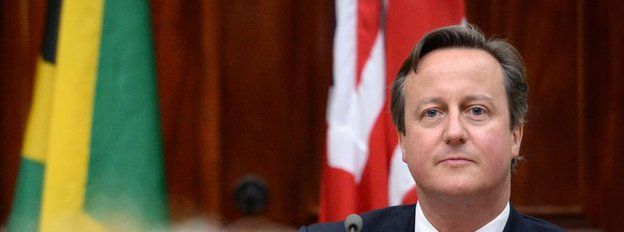 PA
PA
By BBC News correspondent Elaine Dunkley
While Prime Minister David Cameron is keen to send criminals back to Jamaica to serve their sentences, Jamaicans want to talk about the wrongs of Britain's past.
The state of Jamaica's prison system has long been a source of international embarrassment for the island. Medical care is poor and there is serious overcrowding.
But more important to Jamaicans is the news that the British government will invest tens of millions in vital infrastructure in the Caribbean to help drive economic growth and create jobs.
The issue of reparation for Britain's involvement in slavery has been the mosquito in the ointment for Mr Cameron.
There have been calls from the Jamaican government to make financial amends and apologise.
No apology from him, but instead an acknowledgement about the impact that slavery has had.
Mr Cameron wanted this visit to be about the future - but Jamaica certainly can't forget the past.
The issue of former slave-owning nations compensating former colonies is a contentious one in the Caribbean, where national commissions have calculated the sums could run into trillions of dollars.
One suggestion has been that the money could be provided in the form of debt relief.
Mrs Simpson Miller told the United Nations in 2013 there should be "an international discussion in a non-confrontational manner" and its parliament had passed a motion backing reparations.
One Jamaican MP, Mike Henry, threatened to boycott Mr Cameron's speech at the country's parliament if he did not engage on the issue.
Britain's slave-owners
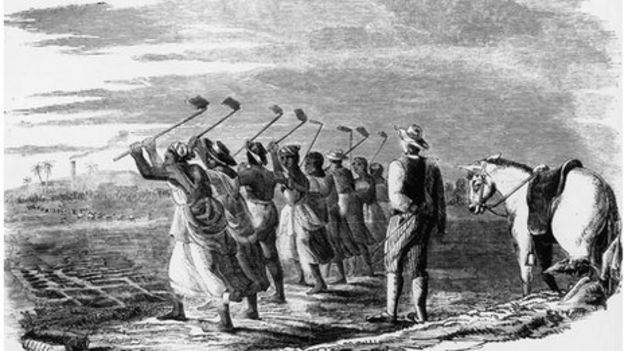 Getty Images
Getty Images
For more than 200 years Britain was at the heart of a lucrative transatlantic trade in millions of enslaved Africans.
According to ship records it is estimated about 12.5 million people were transported as slaves from Africa to the Americas and the Caribbean - to work in often brutal conditions on plantations - from the 16th century until the trade was banned in 1807.
In 1833, Britain emancipated its enslaved people and raised the equivalent of £17bn in compensation money to be paid to 46,000 of Britain's slave-owners for "loss of human property". University College London has compiled a database of those compensated.
Among those listed is General Sir James Duff, who it is claimed is a first cousin six times removed of David Cameron. He was awarded compensation worth about £3m in today's terms.
Others who received compensation include the ancestors of novelists George Orwell and Graham Greene, as well as distant relatives of Arts Council chairman Sir Peter Bazalgette and celebrity chef Ainsley Harriott.
Campaigners also called on Mr Cameron to make a personal apology, saying one of his own ancestors was paid compensation for the loss of his slaves in 1834.
Bert Samuels, a member of Jamaica's National Commission on Reparations, told Television Jamaica "he needs to atone, to apologise personally and on behalf of his country".
Sir Hilary Beckles, chairman of Caricom's reparations commission, wrote in an open letter in the Jamaica Observer that the UK must "play its part in cleaning up this monumental mess of Empire".
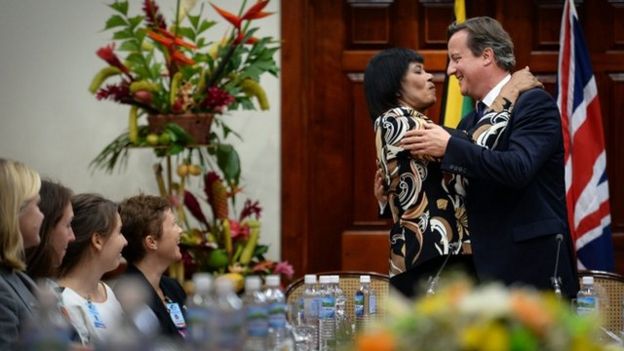 PA
PA
Labour leader Jeremy Corbyn, who lived in Jamaica for two years in his youth, said that, as prime minister, he would be ready to apologise for the slave trade.
Speaking at Labour's annual conference in Brighton, Mr Corbyn said it was "the most brutal part of our history and the history of Jamaica".
During his two-day visit, Mr Cameron revealed the UK will spend £25m on building a prison in Jamaica so that foreign criminals in the UK can be sent home to serve sentences in the Caribbean.
More than 600 Jamaican nationals are in UK jails but cannot be deported because of Jamaica's poor prison conditions.
Officials say the foreign aid-funded deal could save taxpayers £10m a year when transfers begin in 2020.
The Howard League for Penal Reform criticised the plan, saying it was "the wrong use of foreign aid" and would fail to address the real issue of overcrowding in British prisons.

